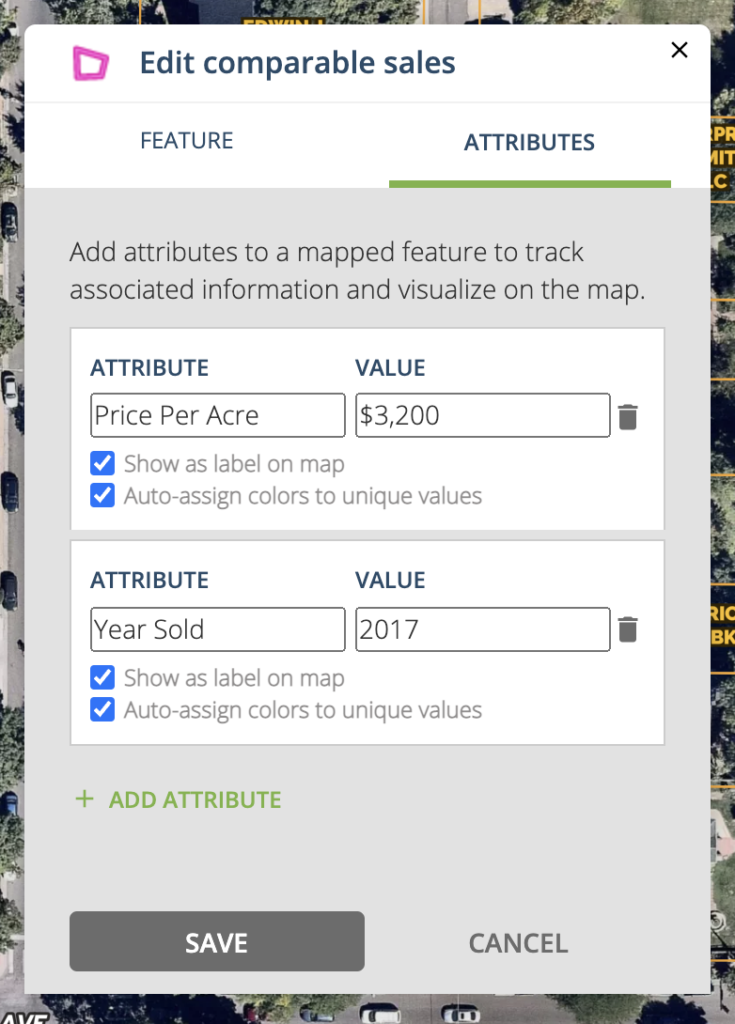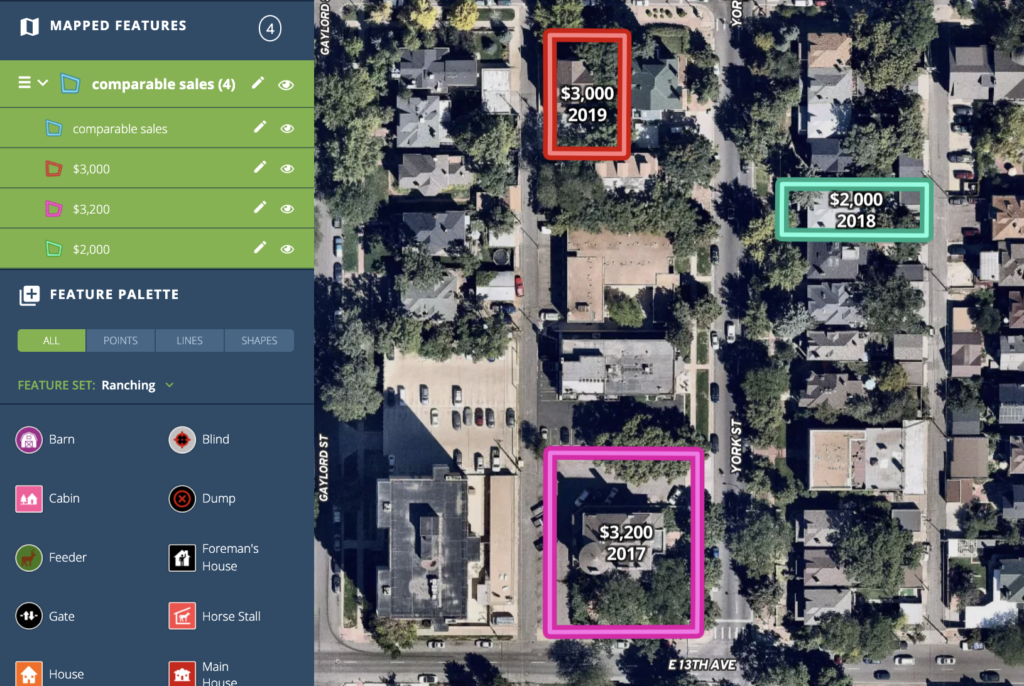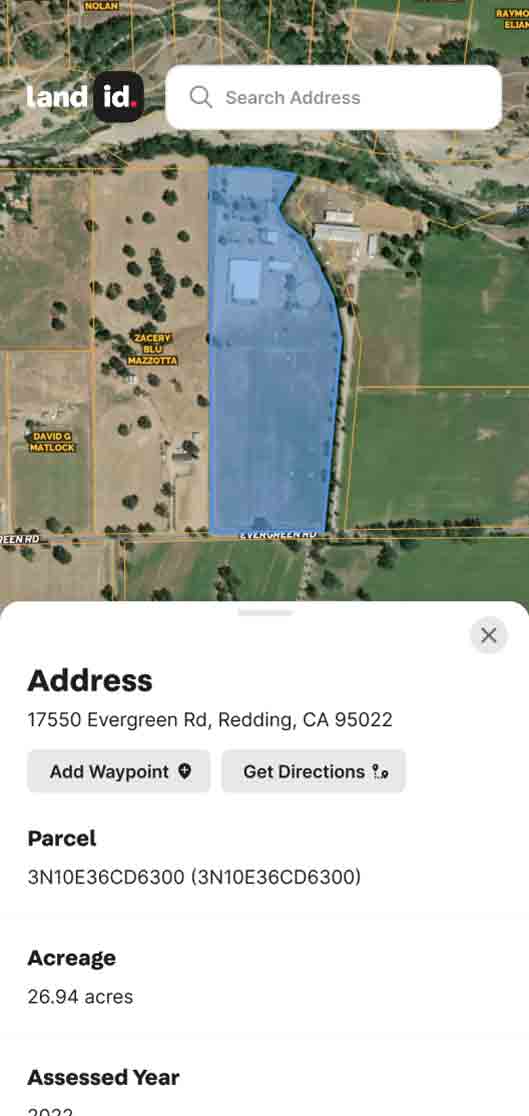Buying or selling a property takes a lot of research, and you’ll want to have all of the information available before making a transaction of this magnitude. One method realtors use to make well-informed, profitable decisions is analyzing comparable sales (comps for short). Similar to an appraisal, real estate comps are used to determine what a property is worth, but they do so in different ways. An appraisal is an unbiased evaluation by a licensed professional of a home’s value, while comps determine the value by looking at other properties with similar attributes. While appraisals tend to hold more legal weight, there are many benefits to using comps instead. To start, comparable sales are less expensive than appraisals, but more than that, they often take less time to acquire and evaluate, especially with real estate comps software. In today’s market, time is of the essence.
What To Consider When Comparing Properties
When making real estate comps, it’s important to compare like with like — apples to apples and oranges to oranges, so to say. Look for properties with similarities in the areas that matter most; while there are near-infinite factors you could analyze when comparing properties, there are a few that almost always need to be taken into consideration (these are just a few).
Size
One of the most important factors to consider in your comps is the size of the property. To start, you’ll want to look at the square footage of the home itself. While two properties may have the same number of bedrooms, the size of those bedrooms could be the difference between someone making a purchase and opting for another home. You’ll also want to look at the total lot size, as outdoor space can be extremely valuable; two identical homes with different lot sizes aren’t identical at all.
Location
Location is the determining factor for many homebuyers because while you can change a lot about a home, you can’t change where it is. When making comps, it’s crucial that the other properties you assess are in the same (or similar) neighborhoods and school districts. They should have the same level of walkability, the same proximity to local shops, comparable community amenities, and one should not be located by a noisy road or landfill if the other is not, as well.
Number Of Bedrooms And Bathrooms
Even if two homes are the exact same size, if one is broken up into many smaller rooms while the other is split into a few large spaces, they aren’t comparable, as they’ll serve very different purposes. So, it’s best to find homes with the same number of bedrooms and bathrooms, or better yet, the same floorplan. However, if you can't find a house with the exact same layout, look for one with the same number of rooms that falls into the same category (ranch style, modern, contemporary, etc.).
Year Built
A home’s age will impact its condition, which will play a role in the costs of repairs and updates down the road. So, look for homes that are built within a few years of the home you’re looking to buy or sell, as those properties will be more comparable than properties built decades apart.
Updates
Renovations can have a major impact on a home's value, as even small updates can go a long way in increasing the desirability of a property to prospective buyers. Some of the most popular updates are bathroom remodels, landscaping, kitchen remodels, exterior improvements (such as an updated front entry), attic bedroom conversions, deck, patio, or porch additions, basement remodels, replacement windows, family room additions, bonus room updates, bedroom updates (such as new lighting fixtures or window treatments), and last, updated living room walls and floors.
Perks
For some buyers, a pool is simply a perk, but for others, it’s a requirement. So, properties with pools aren’t comparable to properties without, and the same goes for views, garages, storage space, and other “perks”.
Creating A Comparable Sales Database With Real Estate Comps Software
Needless to say, there are a lot of factors to consider when creating comps. With real estate comps software — such as what you’ll find in Land id® (formerly MapRight) — customers can create fully customizable databases, allowing them to easily store, reference, and visualize comparable properties.
Search Parcel Data
Land id’s real estate comps software offers the most extensive, accurate parcel data available, where you can find information on property boundaries, ownership, APN numbers, taxes, size, legal descriptions, and more. You can search parcels by APN, landowner name, or coordinate location to see all parcels that match your specifications within a set radius of a property, and best of all, turn parcel data into a comparable sales feature group by simply clicking “Convert to mapped feature.”

Add Attributes
Our real estate comps software gives you full control over what feature groups you track on your map, and you can even differentiate features by attribute. For instance, you could add attributes for year sold, square footage, sale price, and more. Add as many attributes to a feature as you need, and toggle them on and off to your liking.

Visualize Data
So you’re able to quickly visualize your data, Land id’s real estate comps software allows you to change the color for each feature or attribute value. And once you’ve customized the appearance of your data, you can choose “Show as label on map” to automatically label features by their name and attributes, keeping your map organized. With these customizations, patterns and trends become apparent, and making analysis based on your real estate comps is easy.

Get Started With Land id®
With Land id’s real estate comps software, making a sales comparison isn’t half as challenging as it used to be. By layering all of your findings onto one organized, interactive map, you’ll gain a deeper understanding of the market. Land id® offers a vast range of data, the ability to upload your own information, an array of customizations, and even allows you to instantly turn parcel data into a comparable sales feature group. With all of this at your fingertips, you’ll be well-equipped to make accurate, useful real estate comps. Ready to make a better comparable sales analysis? Start your 7-day free trial of Land id® today!
FAQs
Continue Reading





